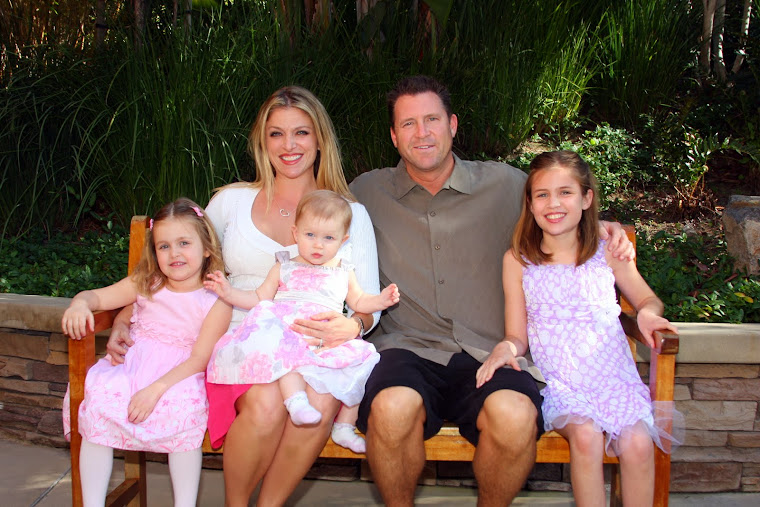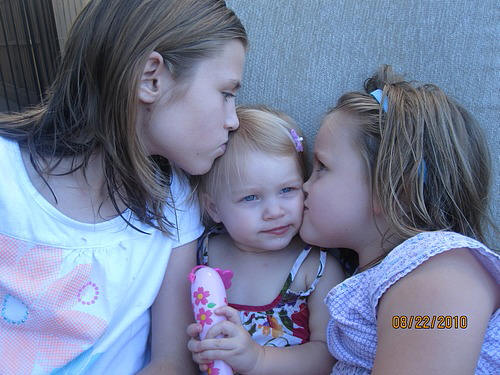After our two hour neurologist appointment this morning its pretty safe to say that Cali and Ryann both have the same "thing". Whatever that "thing" is. Their "thing" is not specifically diagnosed but put into the category of Spinocerebellar ataxia. I went ahead and googled it for you and pasted what I found at the end of this post.
What is the next step??? At this point we are going to get Cali and Ryann a new MRI. After we receive the MRI the images will be sent to specialists (radiologists, geneticist, neurologists) that specialize in Spinocerebellar ataxia. Cali will also get an IQ test outside of school so that we can determine where she is delayed mentally. This will hopefully help her teachers with their teaching methods. (I say hopefully because with special education it all depends on the teacher and how motivated they are. We are also referred to an herbalist for acupuncture (worth a shot). Our doc says she sees great potential in Cali and she is a bright and happy young lady. We obviously agree and may I add she is beautiful and can be a pain in our butts as most tweens are. :-)
As you can see in the health article below their is not a cure only treatments to soften the symptoms. Wow, two special daughters with special needs! We are going to stay active and busy!! Oh, and as Rae always reminds us "I'm special too Mommy ". So really we are blessed with three special daughters :-). xoxoxo
From Wikipeida/Bing health article:
Symptoms
Spinocerebellar ataxia (SCA) is one of a group of genetic disorders characterized by slowly progressive incoordination of gait and often associated with poor coordination of hands, speech, and eye movements. Frequently, atrophy of the cerebellum occurs. [1]
As with other forms of ataxia, SCA results in unsteady and clumsy motion of the body due to a failure of the fine coordination of muscle movements, along with other symptoms. Generally, a person with ataxia retains full mental capacity but may progressively lose physical control.
Treatment:
Treatments are generally limited to softening symptoms, not the disease itself. The condition can be irreversible. A person with this disease will usually end up needing to use a wheelchair, and may need assistance to perform daily tasks. (that's for sure!)
The treatment of incoordination or ataxia, then mostly involves the use of adaptive devices to allow the ataxia individual to maintain as much independence as possible. Such devices may include a cane, crutches, walker, or wheelchair for those with impaired gait; devices to assist with writing, feeding, and self care if hand and arm coordination are impaired; and communication devices for those with impaired speech.
Subscribe to:
Post Comments (Atom)







Love the new blog and hearing how you all are doing! This must be a difficult time, getting that news. Hang in there, you are a great Mom. We would love to see you soon. Take care of yourself!
ReplyDeleteShannon